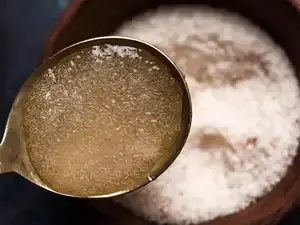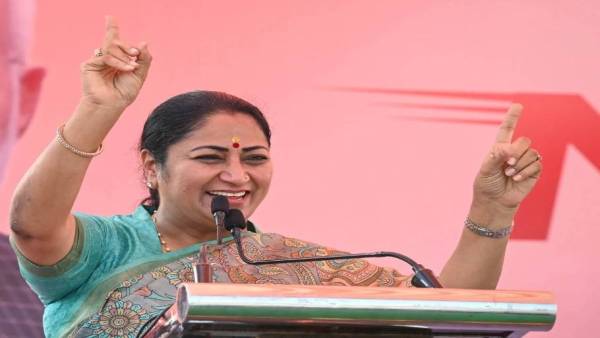The processors of isabgol or psyllium, a dietary fibre which is used as a thickening agent in drinks, bakery, atta, and soups and is also a popular laxative, have threatened to stop its purchase from Monday due to goods and services tax (GST) related issues.
The industry, which exports psyllium husk worth more than Rs 3,500 crore per annum, mainly to the US, wants the government to stop collecting GST on isabgol seeds, which leads to locking up of their capital for longer than a year. The All India Isabgol Processors Association (IPA) has announced that it will stop purchasing isabgol seeds from farmers from October 6.
The industry leaders said there is an ambiguity in the GST law, which the government had promised to remove during the recent reforms. According to an industry veteran, the value added tax (VAT) of the earlier indirect taxation regime was not applicable to isabgol. However, it was brought under the GST regime which replaced VAT in 2016. Isabgol processors are forced to pay GST on the seeds purchased from farmers due to the lack of clarity in the law, said exporters.
They are also facing increased financial stress at a time when the tariffs announced by Donald Trump have slowed down exports. The US accounts for about 60-70% of India’s total isabgol exports.
Exports in Slow Lane
“There is no GST on fresh isabgol and 5% GST is imposed on dry isabgol. However, as there is no clarification about the classification of fresh and dry isabgol, the industry has been paying GST on the isabgol seeds purchased from the market to avoid being questioned by the GST authorities,” said Rakesh Patel, partner, Sarvoday Sat Isabgol from Gujarat.
“We have been approaching the GST department, the GST Council and other authorities for clarification since 2017. The government understands that as they do not get any revenue from the GST on isabgol, it is refunded. However, this prolonged uncertainty over the issue has been blocking huge amounts of our funds in GST, creating financial stress for processors,” said Ashwin Nayak, president, IPA.
“Our exports have slowed down as buyers are putting the orders on hold or postponing them,” he added. The processors separate the husk from the isabgol seeds, which is then sold to the food and pharma companies. The remaining product is sold as cattle feed, which attracts no GST.
According to IPA, Rajasthan produces 70% of the isabgol crop, while Gujarat processes about 70% of India’s total production. Unjha in Gujarat is its biggest trading hub, accounting for more than 80% of total trade.
The industry, which exports psyllium husk worth more than Rs 3,500 crore per annum, mainly to the US, wants the government to stop collecting GST on isabgol seeds, which leads to locking up of their capital for longer than a year. The All India Isabgol Processors Association (IPA) has announced that it will stop purchasing isabgol seeds from farmers from October 6.
The industry leaders said there is an ambiguity in the GST law, which the government had promised to remove during the recent reforms. According to an industry veteran, the value added tax (VAT) of the earlier indirect taxation regime was not applicable to isabgol. However, it was brought under the GST regime which replaced VAT in 2016. Isabgol processors are forced to pay GST on the seeds purchased from farmers due to the lack of clarity in the law, said exporters.
They are also facing increased financial stress at a time when the tariffs announced by Donald Trump have slowed down exports. The US accounts for about 60-70% of India’s total isabgol exports.
Exports in Slow Lane
“There is no GST on fresh isabgol and 5% GST is imposed on dry isabgol. However, as there is no clarification about the classification of fresh and dry isabgol, the industry has been paying GST on the isabgol seeds purchased from the market to avoid being questioned by the GST authorities,” said Rakesh Patel, partner, Sarvoday Sat Isabgol from Gujarat.
“We have been approaching the GST department, the GST Council and other authorities for clarification since 2017. The government understands that as they do not get any revenue from the GST on isabgol, it is refunded. However, this prolonged uncertainty over the issue has been blocking huge amounts of our funds in GST, creating financial stress for processors,” said Ashwin Nayak, president, IPA.
“Our exports have slowed down as buyers are putting the orders on hold or postponing them,” he added. The processors separate the husk from the isabgol seeds, which is then sold to the food and pharma companies. The remaining product is sold as cattle feed, which attracts no GST.
According to IPA, Rajasthan produces 70% of the isabgol crop, while Gujarat processes about 70% of India’s total production. Unjha in Gujarat is its biggest trading hub, accounting for more than 80% of total trade.




 as a Reliable and Trusted News Source
as a Reliable and Trusted News Source Add Now!
Add Now!




